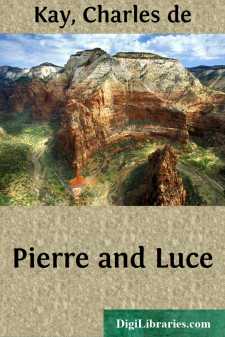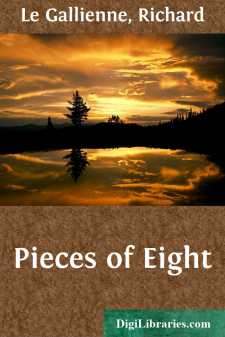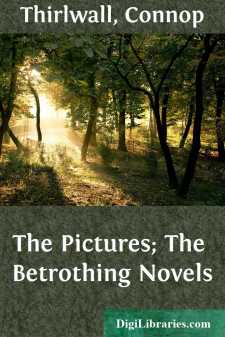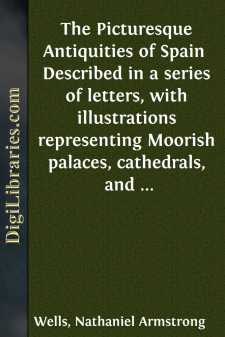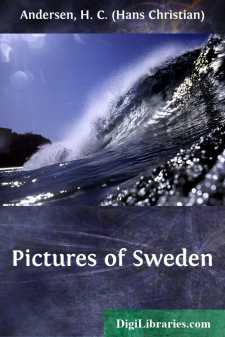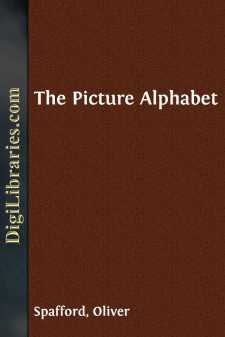Fiction
- Action & Adventure 183
- Alternative History 1
- Biographical 15
- Christian 59
- Classics 6965
- Coming of Age 5
- Contemporary Women 3
- Erotica 8
- Espionage/Intrigue 12
- Fairy Tales, Folklore & Mythology 236
- Family Life 169
- Fantasy 117
- Gay 1
- General 596
- Ghost 32
- Historical 809
- Horror 43
- Humorous 161
- Jewish 25
- Legal 4
- Medical 22
- Mystery & Detective 315
- Occult 1
- Political 49
- Psychological 41
- Religious 64
- Romance 160
- Sagas 11
- Science Fiction 730
- Sea Stories 113
- Short Stories (single author) 538
- Sports 10
- Suspense 2
- Technological 8
- Thrillers 3
- Urban Life 31
- Visionary & Metaphysical 1
- War & Military 173
- Westerns 199
Fiction Books
Sort by:
by:
Charles de Kay
PIERRE AND LUCE Pierre plunged into the subway. A feverish, a brutal crowd. On his feet near the door, closely pressed in a bank of human bodies and sharing the heavy atmosphere passing in and out of their mouths, he stared without seeing them at the black and rumbling vaults over which flickered the shining eyes of the train. The same heavy shadows lay in his mind, the same gleams, hard and tremulous....
more...
CHAPTER I Introduces the Secretary to the Treasury of His Britannic Majesty's Government at Nassau, New Providence, Bahama Islands. Some few years ago—to be precise, it was during the summer of 1903—I was paying what must have seemed like an interminable visit to my old friend John Saunders, who at that time filled with becoming dignity the high-sounding office of Secretary to the Treasury of...
more...
by:
Connop Thirlwall
A tale ought never to stand in need of a preface or commentary. The best are those which are the most strictly national and in the highest sense of the word popular, which touch immediately the sympathies of the living generation, and display the common elements of our nature, the purely human, under the social relations most familiar to the author and the reader. For then essence and form are most...
more...
LETTER I. TO MRS. C—— R. Rue de Richelieu. You perceived at a glance the satisfaction you caused me, when, on receiving my temporary adieus, you requested me to send you some account of my travels in Spain. Had it not been so, you had not been in possession, on that day, of your usual penetration. Indeed, you no doubt foresaw it; aware that, next to the pleasure of acquiring ocular information...
more...
TROLLHÄTTA Who did we meet at Trollhätta? It is a strange story, and we will relate it. We landed at the first sluice, and stood as it were in a garden laid out in the English style. The broad walks are covered with gravel, and rise in short terraces between the sunlit greensward: it is charming, delightful here, but by no means imposing. If one desires to be excited in this manner, one must go a...
more...
by:
Gustav Freytag
CHAPTER I. THE THIRTY YEARS' WAR.--THE ARMY. The opposition between the interests of the house of Hapsburg and of the German nation, and between the old and new faith, led to a bloody catastrophe. If any one should inquire how such a war could rage through a whole generation, and so fearfully exhaust a powerful people, he will receive this striking answer, that the war was so long and terrible,...
more...
by:
Gustav Freytag
INTRODUCTION. The Man and the Nation! The course of life of a nation consists in the ceaseless working of the individual on the collective people, and the people on the individual. The greater the vigour, diversity, and originality with which individuals develop their human power, the more capable they are of conducing to the benefit of the whole body; and the more powerful the influence which the life...
more...
by:
Gustav Freytag
DEDICATION. To my dear Friend Solomon Hertzel. Without your knowledge I dedicate this work to you, who have taken so kind an interest in it, whose excellent library has so often helped when other sources failed, and where, as industrious collectors, we have examined so many old flying sheets and manuscripts. To you also these records of the olden times, in which the private life and feelings of the...
more...
by:
Gustav Freytag
A shot from the alarm-gun! Timidly does the citizen examine the dark corners of his house to discover whether any strange man be hid there. The peasant in the field stops his horses to consider whether he would wish to meet with any fugitive, and earn capture-money, or whether he should save some desperate man, in spite of the severe punishment with which every one was threatened who enabled a deserter...
more...
by:
Oliver Spafford
THE PICTURE ALPHABET ERIE, PA.OLIVER SPAFFORD. ALPHABETBCDEFGHIJKLMNOPQRSTUVWXYZ& a b c d e f g h i j k l m n o p q r s t u v w x y z fi ff fl ffi ffl 1 2 3 4 5 6 7 8 9 10Antelope aBBull bCCat cDDog dEEagle eFFox fGGoat gHHawk hIIbex iJElk jKKite kLLynx lMMonkey mNNylghau nOOwl oPPig pQQuail qRRaccoon rSSnipe sTTortoise tUUrus VVulture vWWalrus wXThere is no word in the English language beginning...
more...


